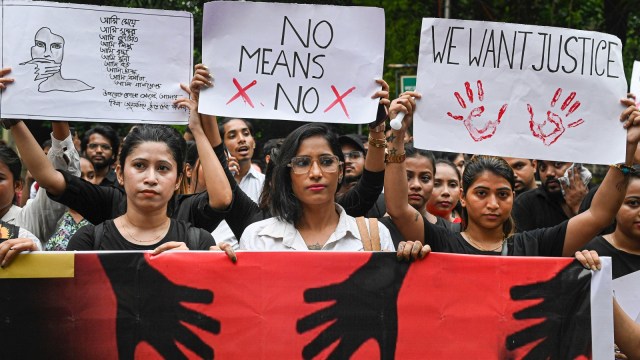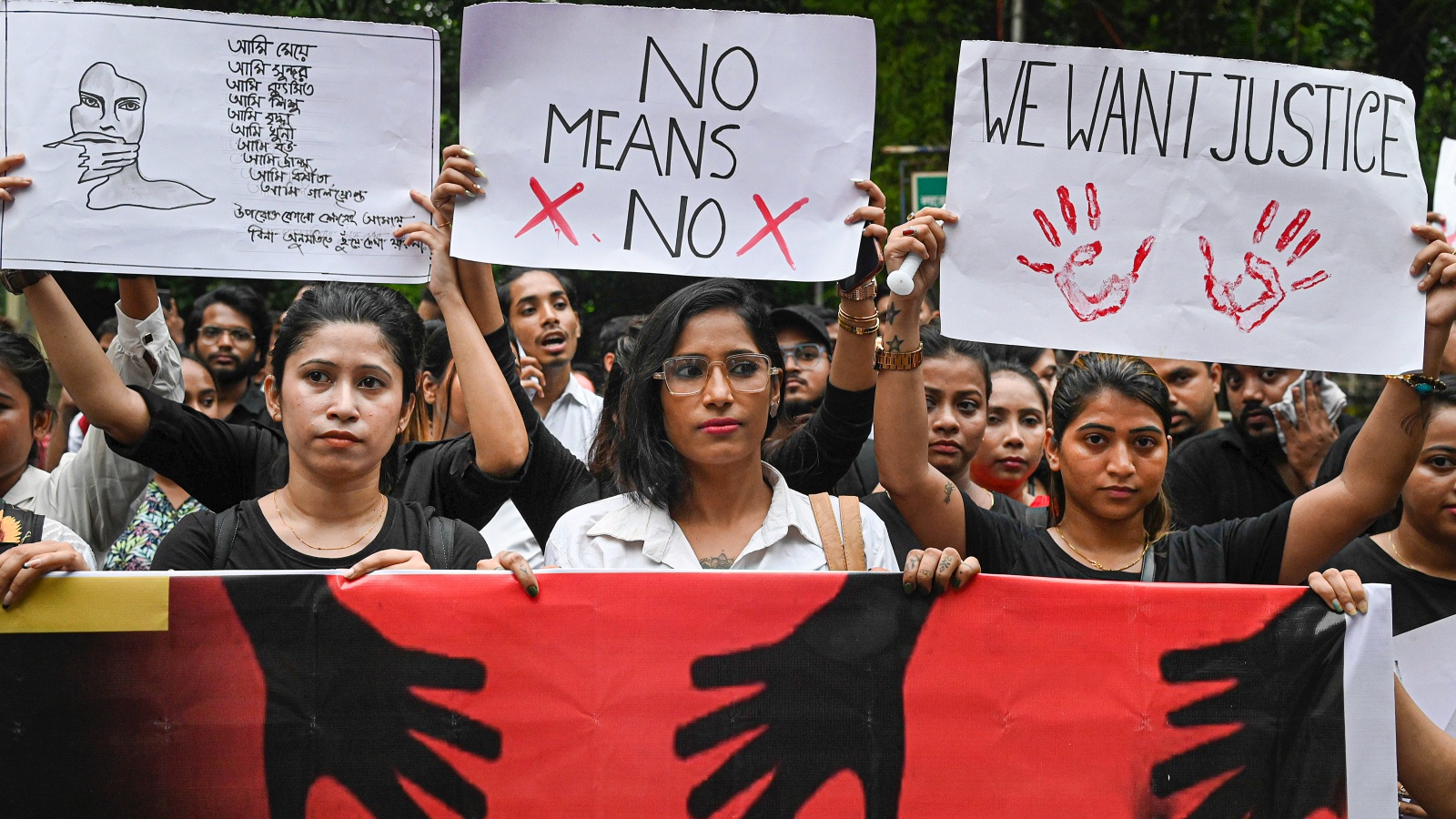
It is difficult to be anything but aghast and stunned at the grotesque facts of the rape and murder of the young trainee doctor at Kolkata’s R G Kar College and Hospital. What took place after she had been killed is equally blood-curdling: The condition of her body, the alleged attempt at a cover-up, the parents having to wait three hours to see their child, the hurried autopsy and cremation. Since then, Indian doctors and Indian people, women in particular, have taken to protests and marches to ensure that some semblance of justice can be delivered to the victim’s family. They have also brought attention to the deplorable conditions faced by female doctors and other medical staff who serve in extremely difficult conditions in under-resourced government hospitals and are denied any guarantee of safety. The inspiring Reclaim The Night movement is calling attention to how patriarchal systems of thought and society routinely deny women safe conditions in their workplaces. Many have asked the pertinent and vexing question: Is it the absence of laws or the persistent patriarchal and misogynist mindset that is to blame here?
Across the border, in Pakistan, the ground reality is the same. As it is in India, getting one of a small number of slots in medical schools is a chance at a better life for a student and his/her entire family. Increasingly, girls are outperforming boys in admission tests for medical schools. When these medical students graduate, they have to work at large government hospitals with few facilities and no safety mechanisms to protect them. In May 2022, a woman doctor was assaulted by a patient’s attendant at Abbasi Shaheed Hospital (one of the government hospitals in Karachi). This is a common occurrence as patients come in with scores of attendants who routinely threaten and intimidate the lone doctors who are trying to provide care for many patients. This case had a similar story.
One month ago, a medical student at Avicenna Medical College was found dead under mysterious circumstances. The administration of the medical college said it was a case of suicide. However, protestors at the college alleged that a professor named Masood Nizam Tabassum had been harassing the girl in the weeks before her death and she was under extreme mental duress. They also accused the chairman of the college, retired army officer Abdul Waheed Sheikh of abusive tactics including making women medical students sit on the floor in “a very odd manner”. Despite the protests, nothing has been done to investigate the death or bring the perpetrators to justice.
Women patients as young as five years old are not safe in hospitals. This was underscored by a case that occurred just this week at Lahore’s Ganga Ram hospital where a young five-year-old girl was raped by a sanitation worker at the hospital. Doctors at the hospital have been protesting the lack of safe conditions at the hospital all week to little avail.
Having faced similar conditions and equally fed up with official and institutional apathy on the issue of women’s security, Pakistani women stand with Indian women as they take to the streets, stage sit-ins, and make social media content drawing attention to the dangerous conditions faced by women, doctors and otherwise in their workplaces. Both India and Pakistan have laws that criminalise rape and sexual assault. However, in both countries, these incidents continue to occur with impunity. The vast majority are not reported because families feel ashamed to admit that such an attack occurred. When they are reported, there may be initial actions against the accused but consequences rarely follow.
This must stop. It is true that rapes occur everywhere in the world and that it is notoriously difficult to prosecute these cases. In the United States and the like too, this is true — defence lawyers routinely try to discredit and shame survivors by revealing their private sexual history. However, the fact that men are predators everywhere is not an excuse for the larger misogynistic mindset that fuels such crimes. All cultures and all societies can produce a world that is safe for both men and women. However, such an outcome can only occur if there is an open and public debate about why men in India and Pakistan think that women, particularly those who work in public spaces, are targets to harass, intimidate and exploit. The root cause of rape is not sexual desire; it is power: The male desire to teach a woman who does not obey or submit a lesson. This, in turn, stems from a deep-seated hatred of women that many South Asian men seem to carry within them.
If a world that is safe for South Asian women is ever to be realised, the men must look at the darkness that lies within them, that sees women with ambition, women in workplaces, women with their own views as an attack on their self-esteem. Women are not going to back down. Men may deny them justice, but they will not be able to deny them strength. For every Abhaya that perishes, millions of others are finding their voices and they will not stop on this side of the border or that one — until they are heard and understood.
The writer is an attorney and columnist at Dawn
© The Indian Express Pvt Ltd
First uploaded on: 24-08-2024 at 12:24 IST



